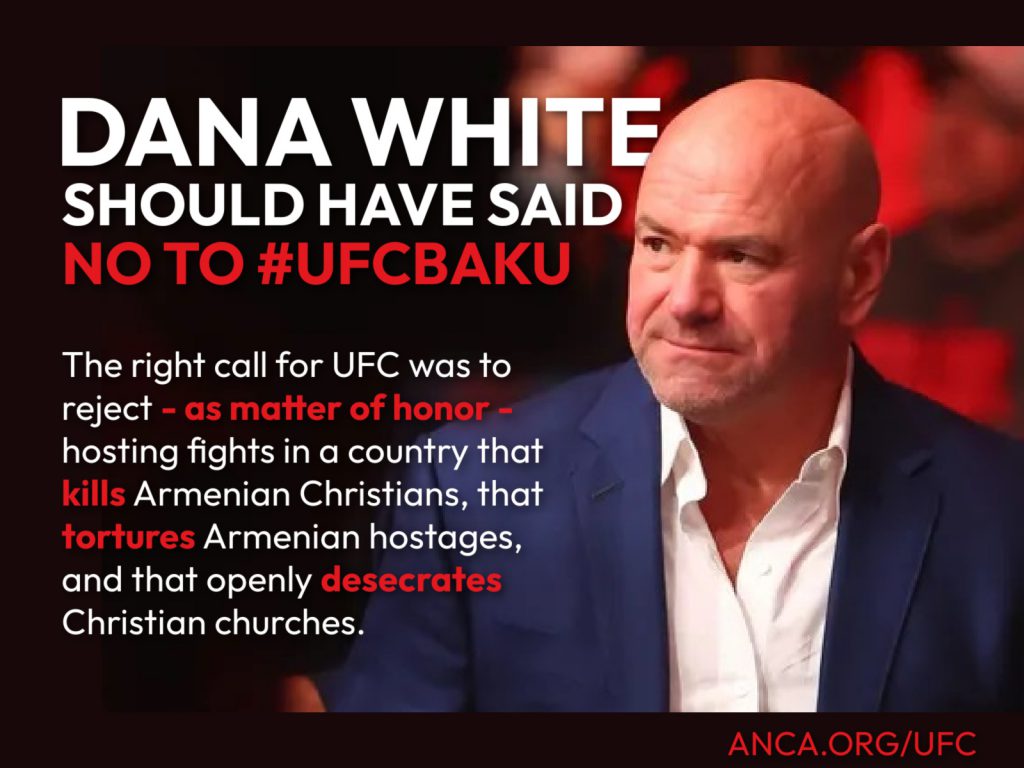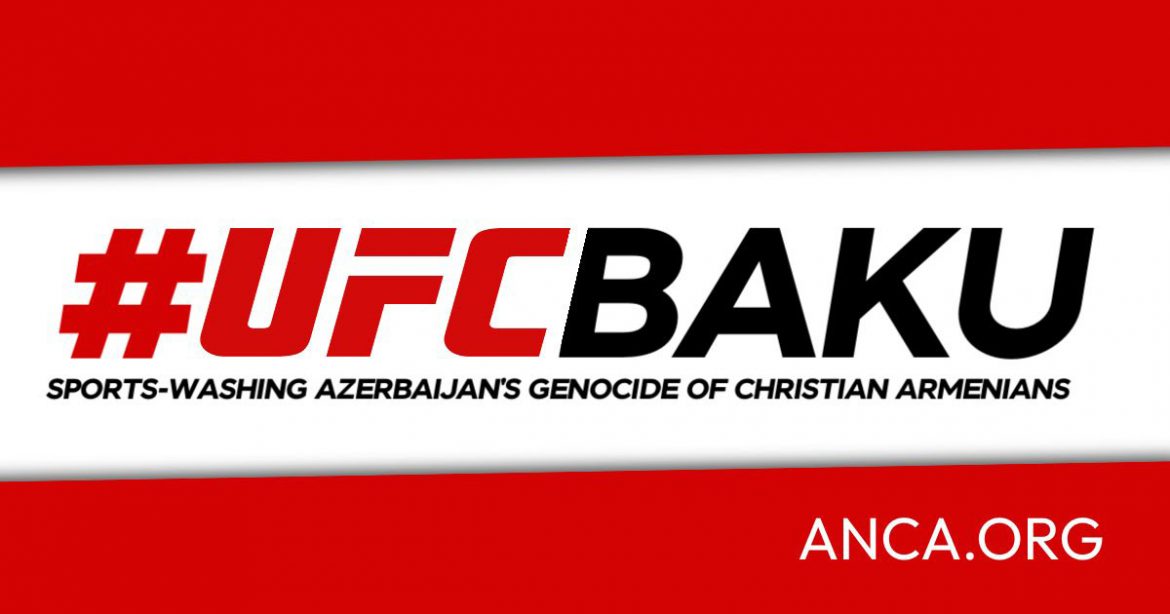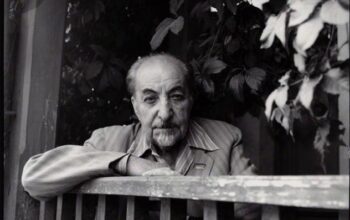— UFC faces backlash for enabling Azerbaijan’s use of sport to distract from ethnic cleansing and ongoing human rights abuses.
WASHINGTON, DC – On June 21st, the Ultimate Fighting Championship (UFC) is set to make its debut in Baku, Azerbaijan – a historic first for the world’s premier mixed martial arts organization. But behind the glitz and adrenaline of the octagon lies a deeply troubling reality: Azerbaijan is using global sporting events to sanitize a record stained by war crimes, ethnic cleansing, and ongoing human rights violations. The decision to hold a UFC event in Baku, so soon after Azerbaijan’s violent seizure of Artsakh (Nagorno-Karabakh) and the forced displacement of its entire indigenous Armenian population, is drawing increasing criticism from human rights advocates, Armenian diaspora groups and allies, as well as international observers, reported the Armenian National Committee of America (ANCA).
“The international community faces a stark choice: remain complicit in Azerbaijan’s propaganda campaign, or use these high-profile moments to shed light on the suffering that continues behind closed doors,” stated ANCA Executive Director Aram Hamparian. “For many Armenians and human rights defenders, UFC’s Baku battle may not be remembered as a celebration of sport, but rather as a missed opportunity to hold a genocidal regime accountable. Azerbaijan may succeed in bringing the UFC to Baku — but it cannot punch its way out of the truth.”

The ANCA has set up a public petition urging UFC CEO Dana White to use the June 21st Baku event as a platform to condemn Azerbaijan’s genocide of Armenian Christians. To sign the petition, visit anca.org/UFC.
In September 2023, Azerbaijan launched a military offensive against the ethnic Armenian population of Artsakh, resulting in the near-total forced depopulation of the region in just days. Over 120,000 Armenians were driven from their homes, and Azerbaijani forces detained key political and military leaders of the former Artsakh government and civilians — figures who remain imprisoned to this day without transparent legal process or international oversight. Human rights watchdogs have described the operation as ethnic cleansing – even genocide – with grave violations of international law including the destruction of religious and cultural heritage, arbitrary detention, and denial of humanitarian access.
Despite these atrocities, Azerbaijan has doubled down on efforts to host international events to project a facade of modernity and legitimacy. Its hosting of COP29, the UN’s major climate summit scheduled for November 2024, raised global alarms among environmentalists and rights groups alike. In the lead-up to COP29, Azerbaijan intensified its crackdown on domestic dissent, arresting journalists, NGO workers, and political activists. A similar concern now looms over the UFC’s Baku card: that sport will be used as a distraction from repression, rather than a platform for global unity.
Perhaps most telling is the conspicuous absence of any prominent Armenian fighters from the UFC lineup. Armenian UFC athletes, such as Arman Tsarukyan and Edmen Shahbazyan, are nowhere to be seen on the Baku card. Given Azerbaijan’s well-documented Armenophobia, it is likely that safety concerns — both for the fighters and the message their participation would send — played a role in their exclusion. The precedent is clear: in 2019, Armenian soccer star Henrikh Mkhitaryan declined to travel to Baku for the Europa League final citing security risks. That absence spoke volumes then, and so does this silence now.
Azerbaijan’s attempt to rebrand itself through global events may backfire. Rather than distracting from the regime’s abuses, the UFC event could amplify scrutiny of its authoritarianism. By stepping into Baku, the UFC risks aligning itself with a regime that systematically violates human rights, censors press freedoms, and imprisons political opponents. The octagon cannot be separated from its political context, especially when hosted in a country where brutality has been normalized and justice remains elusive.




